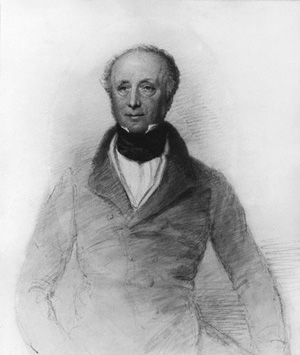ON A STUPENDOUS LEG OF GRANITE
Horace Smith
In Egypt's sandy silence, all alone,
Stands a gigantic Leg, which far off throws
The only shadow that the Desart knows: -
"I am great OZYMANDIAS," saith the stone,
"The King of Kings; this mighty City shows
"The wonders of my hand." - The City's gone, -
Nought but the Leg remaining to disclose
The site of this forgotten Babylon.
We wonder,- and some Hunter may express
Wonder like ours, when thro' the wilderness
Where London stood, holding the Wolf in chace,
He meets some fragment huge, and stops to guess
What powerful but unrecorded race
Once dwelt in that annihilated place.
In 1817 Horace Smith wrote this poem in a friendly competition with the great Romantic poet Percy Bysshe Shelley. The contest was inspired by the transport to Europe of a colossal statue of the great Egyptian Pharaoh, Ramses II. The site of the poem is the Ramasseum, the Temple of Ramses II on the West Bank of the Nile at Luxor. The ruins still stand on the border between the fertile Nile plain and the barren desert hills which hide the royal burial tombs in the Valley of the Kings.
Smith's effort is valiant, but it is certainly let down by its title and Shelley's poem Ozymandias (another name for Ramses II), is certainly the greater work.
